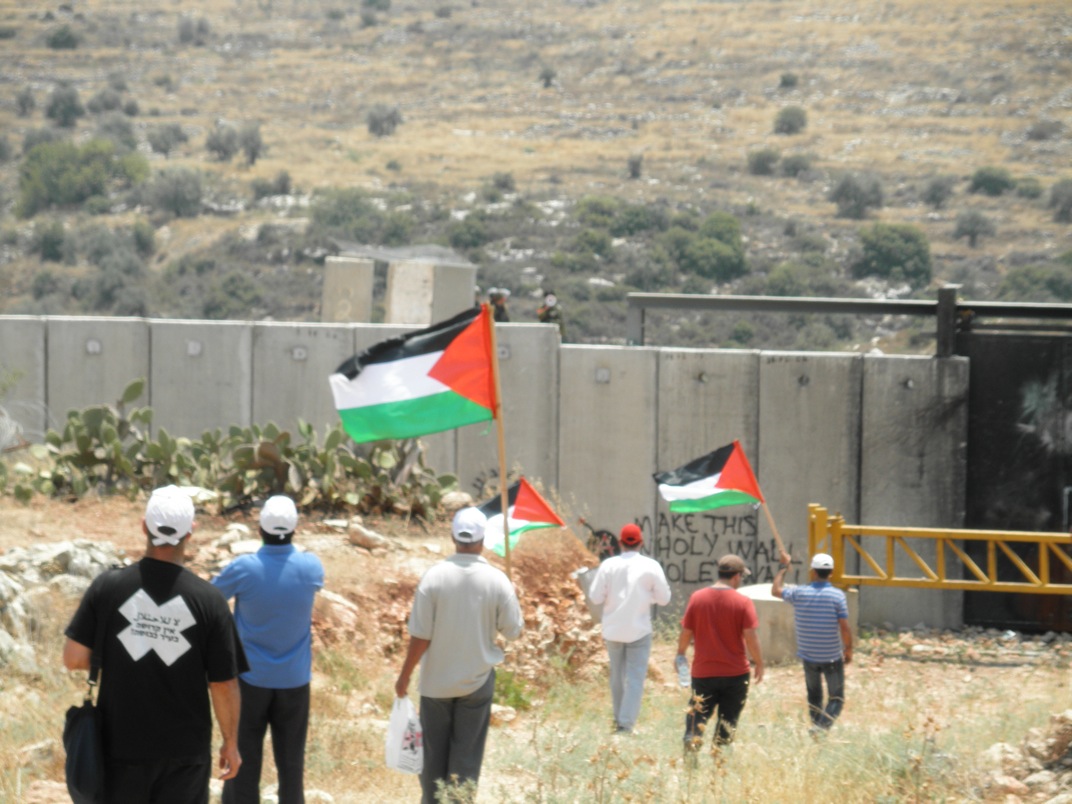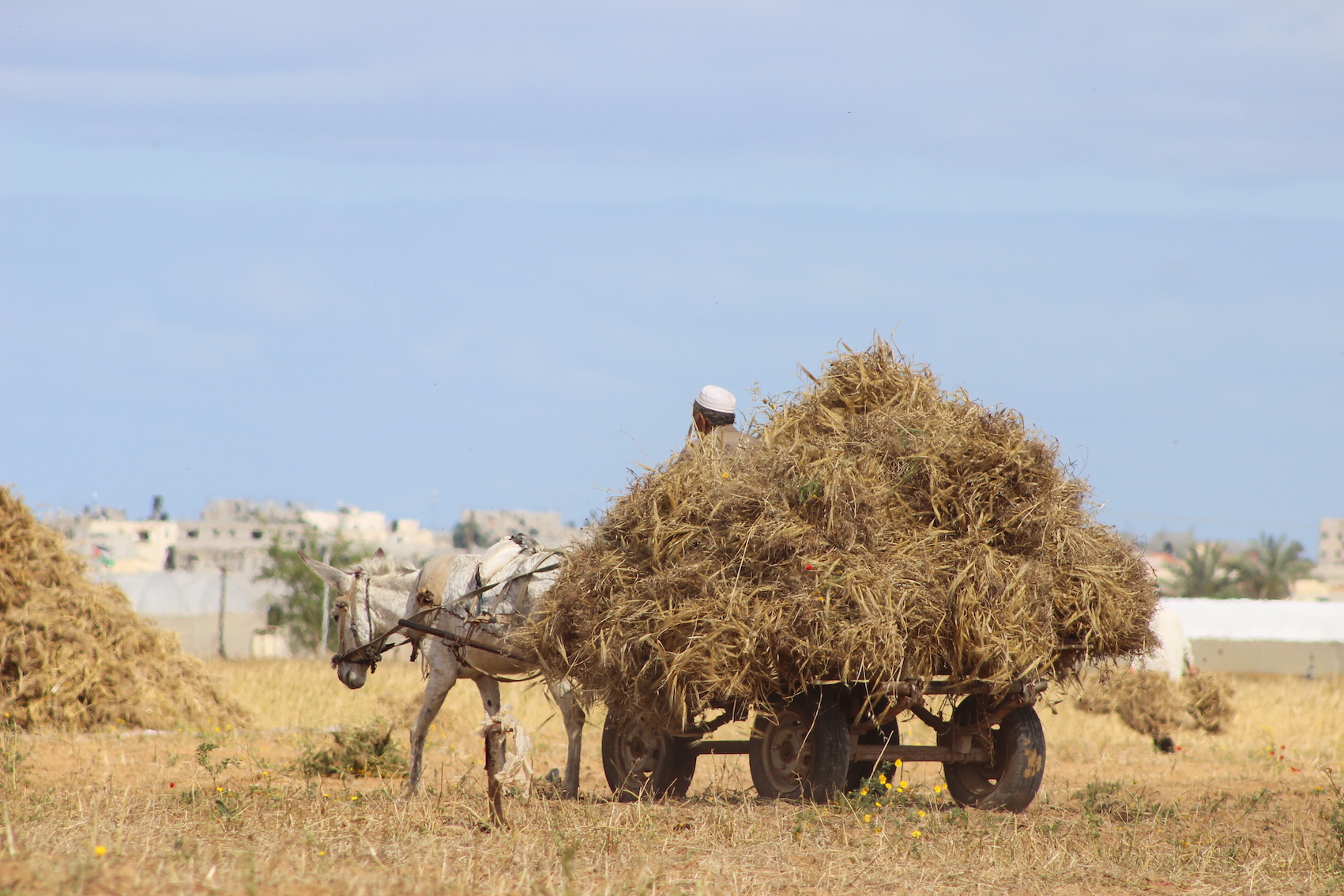-
Imad Abu Shamsiya: A lifetime of resistance
1st May 2016 | International Solidarity Movement, al-Khalil Team | Hebron, occupied Palestine On the morning of the 24th of March around 8:30 am two Palestinian youths, Ramzi Aziz al-Qasrawi, 21, and Abed al-Fattah Yusri al-Sharif, also 21, were shot to death by Israeli forces after an alleged stabbing attempt in the Palestinian neighbourhood of […]
-
Violent night raid in Ni’lin leaves 7-days old baby suffering from tear gas inhalation
3rd May 2016 | International Solidarity Movement, al-Khalil Team | Ni’lin, occupied Palestine During nighttime on the 1st of May, Israeli Forces raided the village of Ni’lin in the West Bank in occupied Palestine without any reason. First, with the arrival of one military jeep, villagers were already aguishly awaiting why the Israeli army is […]
-
Israeli Forces shoot at family harvesting crops on their land
2nd May 2016 | International Solidarity Movement, Gaza team | Gaza, occupied Palestine After more than six months risking their lives while ploughing, planting seeds and weeding their land, and after investing a large amount of money on seeds and on renting a tractor, the Qudaih family from the village of Khuzaa were finally ready to start harvesting their barley and […]
Action Alert An Nabi Saleh Apartheid Wall Arrests BDS Bethlehem Bil'in Cast Lead Demonstration Denial of Entry Ethnic Cleansing Farmers Gaza Global Actions Hebron House Demolition International law Israeli Army Jerusalem Live Ammunition Nablus Ni'lin Prisoner Ramallah Rubber-coated steel bullets Settlement Settlers Settler violence Tear-Gas Canister Video


